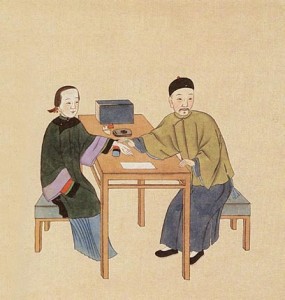 My question to you is why do you keep closing your eyes when you stick your tongue out? The tongue is an important useful organ for many animals. It is used by birds and frogs to catch insects. Dogs and cats stick their tongues out to show affection. It is helpful in chewing and swallowing our food. It plays an important part in forming the sounds we speak. It is also the chief organ of taste. It helps us to determine what and how much food to eat (for some people).
My question to you is why do you keep closing your eyes when you stick your tongue out? The tongue is an important useful organ for many animals. It is used by birds and frogs to catch insects. Dogs and cats stick their tongues out to show affection. It is helpful in chewing and swallowing our food. It plays an important part in forming the sounds we speak. It is also the chief organ of taste. It helps us to determine what and how much food to eat (for some people).
Of course, our sense of smell also determines how the food tastes.
But the tongue is more than that to a Chinese Medicine practitioner.
Since it is highly vascular and contains many important taste receptor cells, it is richly supplied by both the nervous system and circulatory system. It is also constantly nourished or “bathed in” saliva. Saliva is secreted by our salivary glands and controlled by our autonomic nervous system. It contains water, electrolytes, mucus, and enzymes. It serves many functions and can change the appearance of the tongue.
Therefore the tongue is a very sensitive organ and its appearance can change with many physiological changes in the body. By observing the tongue we can see how our whole body is functioning and able to detect imbalances in different systems in our body. When we ask you to stick your tongue out, we are observing
the appearance of the tongue in three distinct areas.
The first area is the
tongue proper.
We may evaluate the size of
the tongue compared to the opening of the mouth or observe any teeth marks on
the sides. This may indicate edema or swelling in your body. We may search for
any ulcerations or lacerations of the tongue. It may indicate a body that is
prone or having some form of inflammation. The color of tongue can give us ideas
of the strength of one’s health. The normal tongue is pinkish red with a certain
shine. When the tongue appears pale, it may be a sign of anemia or weakened
body. When it is red, it may be exhibiting hyperactivity in different systems of
the body. When the tongue color has a tinge of purple, this might be an
indication of pain, congestion and blockages in the body. In general, the tongue
proper exhibits the strength of your body’s own immunity and
functioning.
The second area is the
tongue coating.
A normal tongue should have a
very thin clear coating that exhibits proper enzymatic content and salivary
secretions. When the coat becomes thick, it is frequently a sign of imbalance in
the digestive system.
When the coat turns thick and
cruddy, it is frequently a sign of decreased immune system with Candida (yeast
infection) presentation.
When the coat peels, it is
frequently a sign of damage or weakening to a certain systems of the body. When
the coat turns yellow, it is frequently a sign of infection or inflammation in
the body.
The third area is regional
analysis.
Different areas of the tongue
are represented by the functioning state of different regions of the body. For
example, Area A of the tongue represents the functioning of the nervous system
and the immune system. Any changes in this area can point to common colds, flu,
upper respiratory infections, sleep disorders, and changes in mental state.
Area B of the tongue is represented by the liver and detoxification function
of the body. Changes in this region can indicate changing toxicity levels in the
body.
Darkening color in this region
can mean pain and discomfort in the body. Area C is represented by the
functioning of the digestive system and any changes in this area can be an
indication of imbalance in the digestion and absorption functions in the body.
Area D is represented by the urogenital systems as well as the intestines.
Peeling in this region can mean adrenal weakness or chronic low back pains.
Thickening of yellow coating in this region can mean either constipation or
urinary tract infections. Other changes in this area can indicate problems in
the urinary, reproductive and elimination systems.
So next time when we ask you
to stick your tongue out, please do it with gusto and you do not need to close
your eyes!
